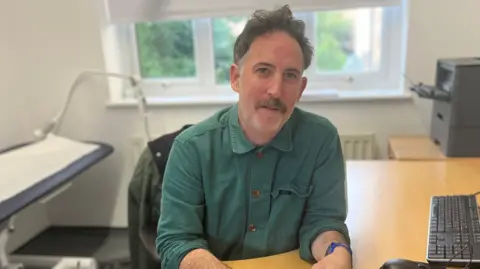Debt advice service helps reduce GP visits

 getty
gettySouth London GP practices are giving financial advice to help patients manage their debts and benefits claims – and the results are striking.
Across the 34 practices running the Back on Track program in Lambeth and Southwark, one in three patients visited their GP less often after receiving advice, and more than 1,100 people gained benefits, cleared their debts or saw a reduction in their stress levels.
One of the people who benefited from the project is Ife, 62, from Stockwell.
She suffers from chronic pain from arthritis and found herself in debt after being forced to give up her job due to mobility issues, while awaiting a knee replacement.
Her request for capacity allowance was refused, despite her limited ability to stand for long periods of time or move around, and her financial worries left her very depressed.
But when Ife found out about the program through her local GP, a financial support worker helped her successfully appeal the UC decision and obtain disability benefits. Ife was also helped to settle her energy and water debts through an affordable payment plan.
She said: “When the surgery told me about Back on Track it was such a relief. The complex PIP (Personal Independence Payment) and UC claim forms were very stressful – I really would not have succeeded financially without the support of my liaison officer.
“I’m so happy now, I’ve referred a few friends in similar situations. I still see my GP from time to time, but almost nothing compared to before.”

The Financial Shield, run by a foundation called Impact on Urban Health, is behind the project which aims to free up GPs’ time and demonstrate how tackling patients’ financial stress can improve their health.
Impact on Urban Health said more than half of participants reported an improvement in their health after receiving personalized support, such as help obtaining benefits, obtaining debt forgiveness or negotiating with creditors.
“Break the cycle”
Vikesh Sharma, a GP from south London who was involved in the project, said: “Over six months, a woman in her 40s saw us several times for heart palpitations. She wasn’t sleeping, had lost confidence in physical activity and was struggling to find work.
“We carried out several blood and heart tests as she sought reassurance. Over time, it became clear that her symptoms were linked to intense stress, due to rent worries and debt. Being able to cite this as a possible cause and immediately offer support transformed the consultation.
“Without this offer [of specialist help]how could I have centered financial health in her care, or expected her to accept it as the root of the problem with no solution?
“Six months later, she returned once, reflecting on how stress had affected her health and [how she was] take steps to improve it.

Michael Parsons, financial foundations program manager at Impact on Urban Health, told BBC London: “What we see over and over again is that people’s health is determined by their finances and when they have money problems their health deteriorates.
“People in poor health are more likely to have financial problems. It becomes a cycle and you have to find ways to try to break the cycle by helping people with their money.
“We find that most people who benefit from the program say their health is better, they feel better about their mental and physical health.
“We are also seeing a reduction in the number of visits to the GP, which shows that financial situation is linked.
“The financial shield aims to allow general practitioners to concentrate on underlying pathologies. By integrating financial support with surgeries, patients can address the root causes of stress, while doctors focus on treatment. This is good for GPs as it is cost effective and preventative.
The NHS said in a statement: “Decisions about this service would be made locally within each system, and information on the expected impact would have been considered locally in Lambeth and Southwark. On the question of wider deployment, it would be up to each integrated care council to comment. »
The government’s ten-year health plan aims to integrate debt support into new neighborhood health services.
The Financial Shield model builds on the London Health Board’s aim to make social advice available to all Londoners who need it, Impact on Urban Health said.





